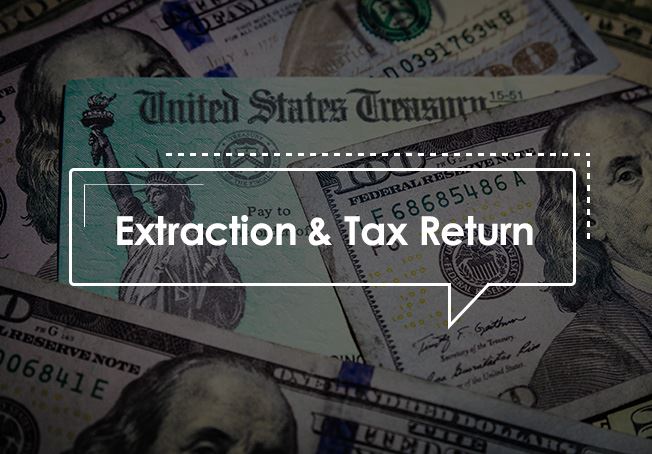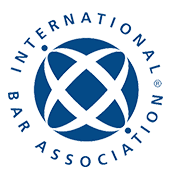
Attorneys for Tax-Free Extraction of U.S. Pensions
Do You Need Help Getting the Most out of Your Retirement Funds?
Let’s get straight to the point: If your country of current or planned residence is listed below, then you can withdrawal your entire U.S.-based retirement plan with 0% tax owed to the IRS. Even if your country is not listed, it may be beneficial to engage us for tax residence planning. Read the full details below.
- Armenia
- Australia
- Austria
- Azerbaijan
- Bangladesh
- Barbados
- Belarus
- Belgium
- Bulgaria
- Canada*
- China
- Croatia*
- Cyprus
- Czech Republic
- Egypt
- Estonia
- Finland
- Georgia
- Germany
- Greece
- Hungary
- Iceland
- India
- Ireland
- Israel
- Italy
- Jamaica
- Japan
- Kazakhstan
- Kyrgyzstan
- Latvia
- Lithuania
- Luxembourg
- Mexico
- Moldova
- Morocco
- Netherlands
- New Zealand
- Norway
- Pakistan
- Philippines
- Romania
- Russia
- Slovakia
- Slovenia
- South Korea
- Spain
- Sri Lanka
- Sweden
- Switzerland
- Tajikistan
- Thailand
- Trinidad & Tobago
- Tunisia
- Turkey
- Turkmenistan
- Ukraine
- United Kingdom
- Uzbekistan
- Venezuela
*Tax is reduced, but not eliminated.

-
"Their team provided excellent service, they were professional, very knowledgeable, attentive and provided clear advice/support for my specific situation."
-
The firm truly defines excellence.
Skyler P. -
Very great company to work with.
Michael H.
Generally, when you withdraw funds from a U.S.-based retirement fund – such as a 401(k), 403(b), Individual Retirement Accounts (IRAs), and even an executive Non-Qualified Deferred Compensation (NQDC) Plan – there’s a 20% withholding tax. In addition to that, if you’re under the age of 59 and six months at the time of the withdrawal, there’s an additional 10% early withdrawal penalty, which is designed to discourage people from withdrawing funds prior to retirement age. For nonresident non-U.S. citizens, there’s a gross-basis 30% withholding tax. In just about any scenario, you’d be looking at losing 30% (nearly one-third) to the IRS.
As long as you’re not a U.S. citizen, attorneys for tax-free extraction of U.S. pensions from Castro & Co. can get your effective income tax rate down to 0% in both the U.S. and your country of residence.
In the absence of planning, an individual will pay 30% tax to the U.S. Although your country of residence will likely grant you a tax credit for the 30% paid to the IRS, you could end up owing additional tax in your effective income tax rate in your country of residence is greater than 30%. For example, let’s say you’re an Australian tax resident with an effective Australian income tax rate of 35%. Although you would get credit for the 30% paid to the IRS, you may still owe an additional 5% to Australia without proper planning.
For a more in-depth explanation, please watch this video of our Managing Partner explaining Tax Free Extractions of U.S. Retirement Plans.
Our ProcessContact & EngagementGet in contact with us! Schedule a day and time for a free consultation with one of our top tax attorneys. Afterwards, we'll get your online file-sharing portal set up. This allows for us to view your documents over a secure cloud network. No need to mail or fax documents. Once the engagement letter is on file, we move on to the next step. |  |
 | Preparation & Conference CallOnce your engagement letter has been signed, we will prepare and submit all of the necessary documentation. Afterwards, a joint conference call with yourself, our tax attorney, and the financial institution will be conducted. |
Extraction & Tax ReturnAfter a completed conference call with the financial institution, our tax planning attorneys will be able to fully extract your U.S. pension, tax free. After 5-7 business days, the funds will either be deposited into a financial institution of your choice, or a check will be sent out to an address you provide. Afterwards, we will need to file your next tax return including the treaty position disclosure. Without this, you risk the IRS imposing penalties, so it's best for us to handle this. |  |
-
Offshore Tax ComplianceTax planning for individuals with offshore accounts in other countries. (FATCA).
-
Exit Tax PlanningBefore departing the U.S. it is important to know how you will be taxed upon leaving. Exit tax planning is crucial.
-
Pre-Residency Tax PlanningBefore moving to the U.S. make sure that you have all your financial affairs in order. We can help with this process as well.
-
Inheritance Tax PlanningReceived an inheritance? Our tax attorneys will help structure a tax efficient strategy that works for you.
-
Estate PlanningDomestic & International trusts, assistance with life planning documents and services for businesses, which include customized retirement plans.
-
AMT Tax PlanningOur tax attorneys will help reduce the odds that you'll owe the AMT through proper tax planning.

-
Free Consultations
-
Experienced & Thoroughly Published Attorneys
-
Innovative Solutions
-
Sophisticated Global Tax Planning
Complete our form below or call us at (833) 227-8761.
-
![Business Interest Deduction: A Guide for Business Owners | Castro & Co. [2024] Photo Business Interest Deduction: A Guide for Business Owners | Castro & Co. [2024] Photo](data:image/gif;base64,R0lGODlhAQABAIAAAAAAAAAAACH5BAEAAAAALAAAAAABAAEAAAICRAEAOw==) Business Interest Deduction: A Guide for Business Owners | Castro & Co. [2024]Read More
Business Interest Deduction: A Guide for Business Owners | Castro & Co. [2024]Read More -
 Drug Use May Constitute Reasonable Cause for the Avoidance of PenaltiesRead More
Drug Use May Constitute Reasonable Cause for the Avoidance of PenaltiesRead More -
![What Can You Do If You Can't Pay Your Business Taxes | Castro & Co. [2024] Photo What Can You Do If You Can't Pay Your Business Taxes | Castro & Co. [2024] Photo](data:image/gif;base64,R0lGODlhAQABAIAAAAAAAAAAACH5BAEAAAAALAAAAAABAAEAAAICRAEAOw==) What Can You Do If You Can't Pay Your Business Taxes | Castro & Co. [2024]Read More
What Can You Do If You Can't Pay Your Business Taxes | Castro & Co. [2024]Read More -
![Taxes for Etsy Shop Owners | Castro & Co. [2024] Photo Taxes for Etsy Shop Owners | Castro & Co. [2024] Photo](data:image/gif;base64,R0lGODlhAQABAIAAAAAAAAAAACH5BAEAAAAALAAAAAABAAEAAAICRAEAOw==) Taxes for Etsy Shop Owners | Castro & Co. [2024]Read More
Taxes for Etsy Shop Owners | Castro & Co. [2024]Read More -
![How Much Should Your Small Business Pay In Taxes? | Castro & Co. [2024] Photo How Much Should Your Small Business Pay In Taxes? | Castro & Co. [2024] Photo](data:image/gif;base64,R0lGODlhAQABAIAAAAAAAAAAACH5BAEAAAAALAAAAAABAAEAAAICRAEAOw==) How Much Should Your Small Business Pay In Taxes? | Castro & Co. [2024]Read More
How Much Should Your Small Business Pay In Taxes? | Castro & Co. [2024]Read More -
 Who Said Depreciation Was Mandatory?Read More
Who Said Depreciation Was Mandatory?Read More -
![Small Business Taxes in Texas Overview | Castro & Co. [2024] Photo Small Business Taxes in Texas Overview | Castro & Co. [2024] Photo](data:image/gif;base64,R0lGODlhAQABAIAAAAAAAAAAACH5BAEAAAAALAAAAAABAAEAAAICRAEAOw==) Small Business Taxes in Texas Overview | Castro & Co. [2024]Read More
Small Business Taxes in Texas Overview | Castro & Co. [2024]Read More -
![How Can A Small Business Lower Their Tax Bill? | Castro & Co. [2024] Photo How Can A Small Business Lower Their Tax Bill? | Castro & Co. [2024] Photo](data:image/gif;base64,R0lGODlhAQABAIAAAAAAAAAAACH5BAEAAAAALAAAAAABAAEAAAICRAEAOw==) How Can A Small Business Lower Their Tax Bill? | Castro & Co. [2024]Read More
How Can A Small Business Lower Their Tax Bill? | Castro & Co. [2024]Read More












![Business Interest Deduction: A Guide for Business Owners | Castro & Co. [2024] Photo Business Interest Deduction: A Guide for Business Owners | Castro & Co. [2024] Photo](/cms/thumbnails/34/385x188/images/blog/is-interest-paid-to-the-irs-tax-deductible-for-business.2312140842331.jpg)

![What Can You Do If You Can't Pay Your Business Taxes | Castro & Co. [2024] Photo What Can You Do If You Can't Pay Your Business Taxes | Castro & Co. [2024] Photo](/cms/thumbnails/34/385x188/images/blog/what-can-I-do-if-I-cant-pay-my-business-taxes.2312121459472.jpg)
![Taxes for Etsy Shop Owners | Castro & Co. [2024] Photo Taxes for Etsy Shop Owners | Castro & Co. [2024] Photo](/cms/thumbnails/34/385x188/images/blog/taxes-for-etsy-shop-owners.2312120921406.jpg)
![How Much Should Your Small Business Pay In Taxes? | Castro & Co. [2024] Photo How Much Should Your Small Business Pay In Taxes? | Castro & Co. [2024] Photo](/cms/thumbnails/34/385x188/images/blog/how-much-will-my-small-business-pay-in-taxes.2312111222374.jpg)

![Small Business Taxes in Texas Overview | Castro & Co. [2024] Photo Small Business Taxes in Texas Overview | Castro & Co. [2024] Photo](/cms/thumbnails/34/385x188/images/blog/small-business-taxes-in-texas.2312071352450.jpg)
![How Can A Small Business Lower Their Tax Bill? | Castro & Co. [2024] Photo How Can A Small Business Lower Their Tax Bill? | Castro & Co. [2024] Photo](/cms/thumbnails/34/385x188/images/blog/how-can-a-small-business-lower-thier-taxes.2312051359092.jpg)